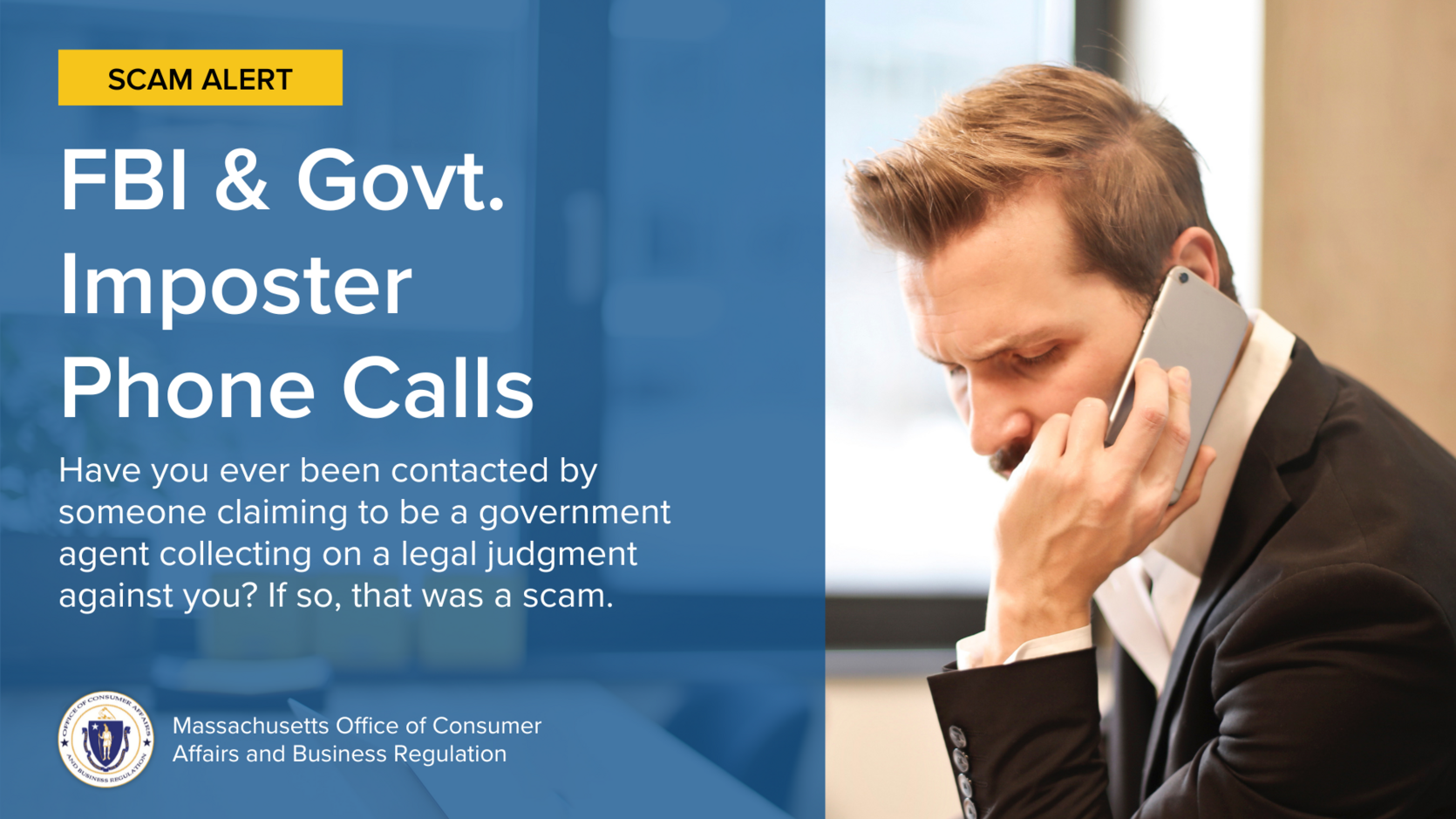- Office of Consumer Affairs and Business Regulation

Have you ever been contacted by someone claiming to be a government agent collecting on a legal judgment against you? If so, that was a scam. The Federal Trade Commission (FTC) recently issued a warning about interactions like these. Specifically, scammers impersonate Federal Bureau of Investigation (FBI) agents, threatening callers who do not fulfill “unpaid judgments” over the phone with arrest or other consequences.
No matter how much pressure a caller puts on you, never give provide payment of any kind or personal information. Instead, take down the phone number, hang up, and report the incident to the FTC using this link. You can also contact the local FBI field office to verify the legitimacy of a call from a supposed agent.
These calls can seem scary, but are actually an old trick. Over the years, fraudsters attempt to impersonate a number of government representatives — including personnel for the Centers for Medicare and Medicaid Services (CMS), Social Security Administration, and other workers — in a bid to steal personal data and money.
The Office of Consumer Affairs and Business Regulation gathered the below tips to arm consumers against the FBI scam and similar ploys:
- Government personnel will not call you for money under any circumstance; someone purporting to work for the government and trying to extort you for funds is a scammer, even if you owe the government money in unpaid fines or the like.
- Any requests for payment through unusual means should ring additional alarm bells. For example, if someone asks you to pay via gift card or wire transfer, don’t send them any money; asks such as this are made because payments via these methods are notoriously hard to claw back from criminals.
- Caller IDs can be fake, so just because a phone number says, “Social Security Administration” or “Federal Bureau of Investigation” doesn’t mean it’s legit.
If you have fallen victim to a government impersonation scheme, provided either your personal information, money, or both, use the Office of Consumer Affairs’ checklist for handling identity theft. If a scammer obtains your personal information, it can be used to imitate you or steal your identity. It’s better to be safe than sorry, even if you’re not sure what exactly a fraudster is doing with the information. Visit the Office’s website for more information about avoiding scams and fraud

